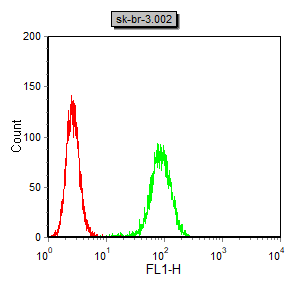
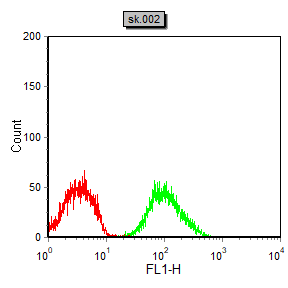
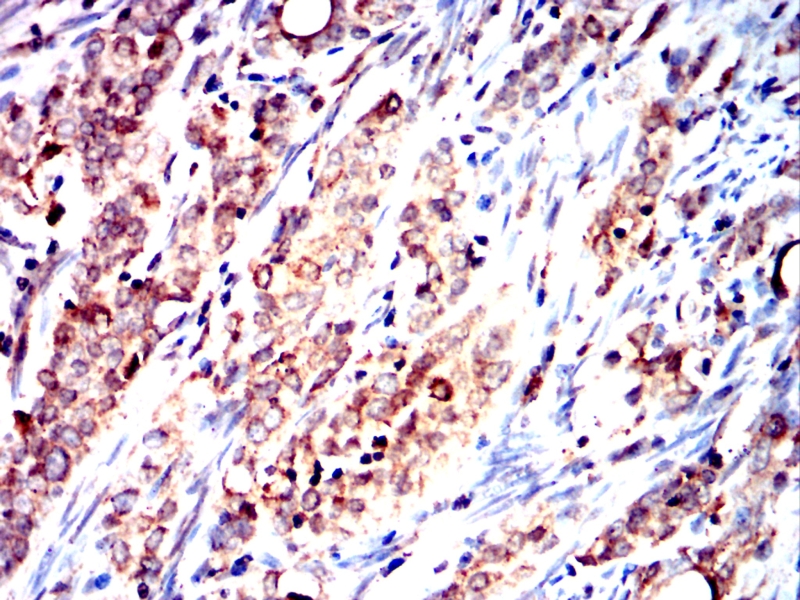
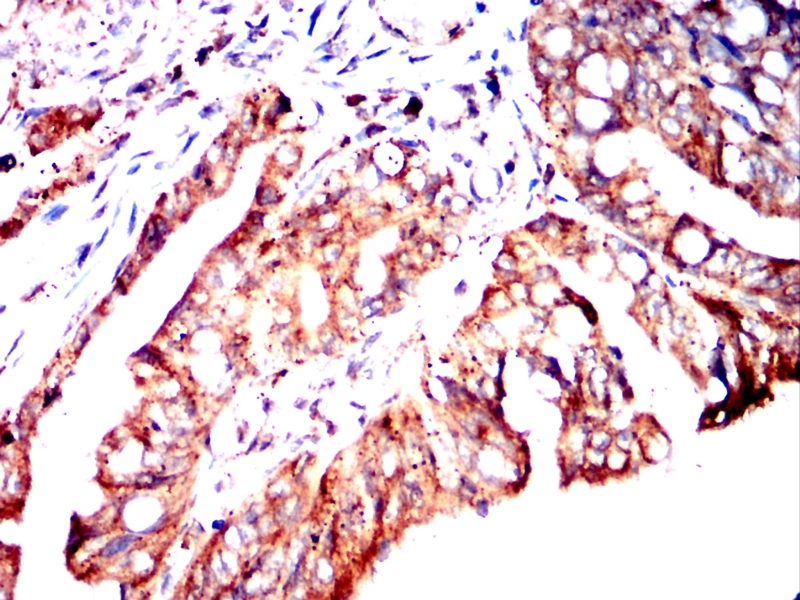
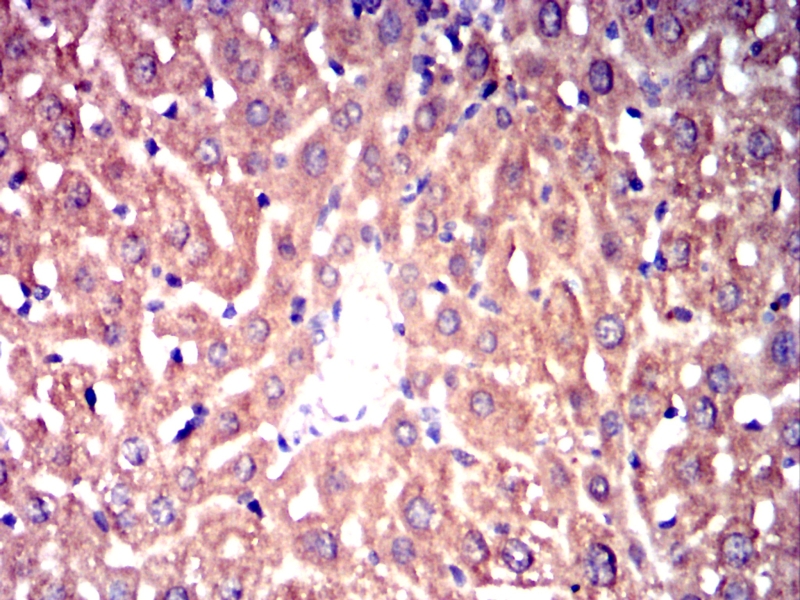
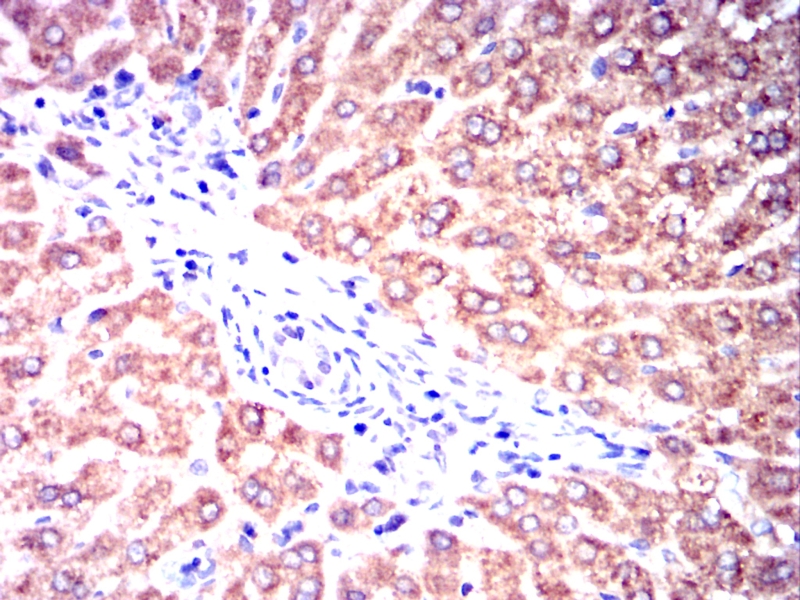
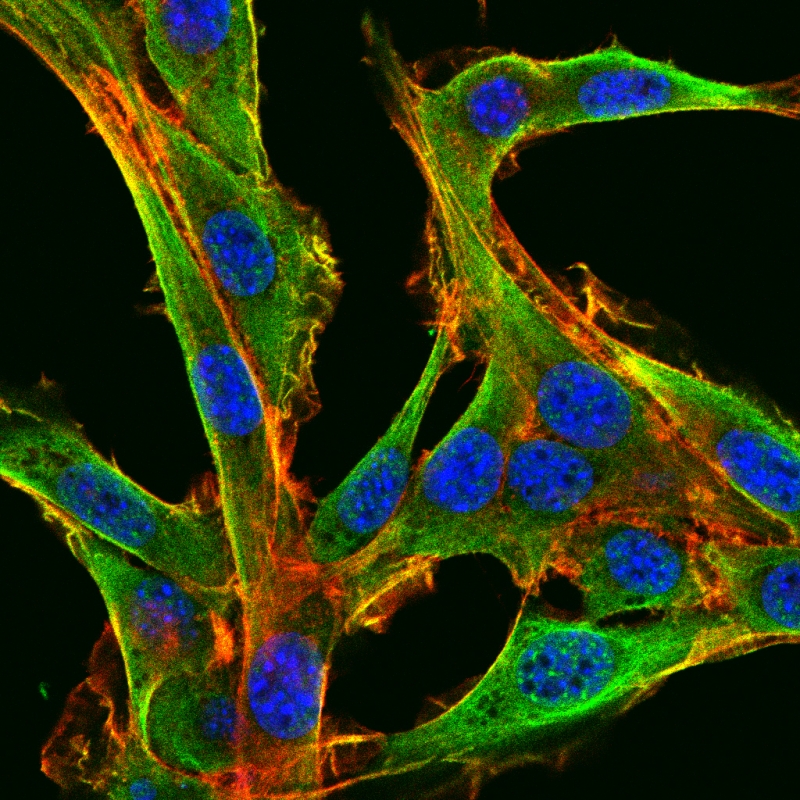
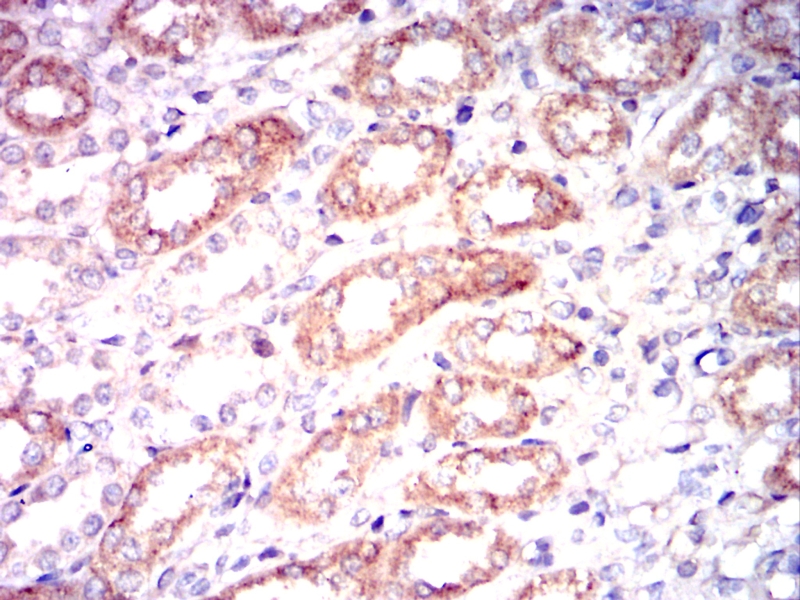
| WB | 咨询技术 | Human,Mouse,Rabbit |
| IF | 咨询技术 | Human,Mouse,Rabbit |
| IHC | 1/200-1/400 | Human,Mouse,Rabbit |
| ICC | 1/25-1/50 | Human,Mouse,Rabbit |
| FCM | 1/200 - 1/400 | Human,Mouse,Rabbit |
| Elisa | 咨询技术 | Human,Mouse,Rabbit |
| Aliases | HM3;PBS;EGBRS;m3AChR |
| Entrez GeneID | 1131 |
| clone | 3G6D10 |
| WB Predicted band size | 66kDa |
| Host/Isotype | Mouse IgG2a |
| Antibody Type | Primary antibody |
| Storage | Store at 4°C short term. Aliquot and store at -20°C long term. Avoid freeze/thaw cycles. |
| Species Reactivity | Human,Mouse,Rabbit |
| Formulation | Purified antibody in PBS with 0.05% sodium azide |
+ +
以下是关于CHRM3抗体的3篇参考文献及其摘要概括:
1. **文献名称**: *"Role of M3 muscarinic acetylcholine receptor in pancreatic β-cell function and glucose homeostasis"*
**作者**: Gautam D, et al.
**摘要**: 该研究利用CHRM3基因敲除小鼠模型,揭示了M3受体在调节胰岛素分泌和血糖稳态中的关键作用,表明CHRM3抗体可能成为糖尿病治疗的潜在靶点。
2. **文献名称**: *"Antibody-based modulation of M3 muscarinic acetylcholine receptor improves overactive bladder symptoms"*
**作者**: Yoshimura N, et al.
**摘要**: 通过开发特异性CHRM3抗体,研究证明其能够抑制膀胱平滑肌过度收缩,缓解动物模型的膀胱过度活动症症状,提示其在泌尿系统疾病中的治疗价值。
3. **文献名称**: *"CHRM3 expression correlates with tumor progression in colorectal cancer"*
**作者**: Miyamoto S, et al.
**摘要**: 该研究使用CHRM3抗体进行免疫组化分析,发现CHRM3在结直肠癌组织中的高表达与肿瘤侵袭性和患者预后不良显著相关,提示其作为癌症生物标志物的可能性。
4. **文献名称**: *"Development of a monoclonal antibody targeting extracellular domain of CHRM3 for therapeutic applications"*
**作者**: Jones RM, et al.
**摘要**: 研究团队成功开发了一种靶向CHRM3胞外结构域的单克隆抗体,体外实验显示其可特异性阻断乙酰胆碱信号通路,为开发CHRM3相关疾病的抗体药物提供了技术基础。
The CHRM3 antibody targets the M3 muscarinic acetylcholine receptor, a G protein-coupled receptor (GPCR) primarily expressed in smooth muscle, exocrine glands, and the central nervous system. CHRM3 mediates acetylcholine-induced signaling through Gq protein activation, triggering phospholipase C (PLC) pathways that regulate smooth muscle contraction, glandular secretion, and cognitive functions. Antibodies against CHRM3 are critical tools for studying its expression, localization, and functional roles in physiological and pathological contexts.
These antibodies are widely used in techniques like Western blotting, immunohistochemistry, and flow cytometry to investigate CHRM3's involvement in diseases such as diabetes (pancreatic β-cell dysfunction), asthma (airway hyperresponsiveness), and neurological disorders. Monoclonal and polyclonal CHRM3 antibodies are generated using recombinant protein fragments or peptide immunogens, with validation including knockout controls and functional assays.
Recent research explores CHRM3's therapeutic potential, as its overactivity is linked to hypersecretory conditions, while antagonists are studied for COPD and overactive bladder. However, antibody applications also face challenges like cross-reactivity with other muscarinic subtypes (e.g., M1/M5) due to sequence homology. Proper validation ensures specificity for accurate experimental outcomes, supporting drug discovery and mechanistic studies of cholinergic signaling pathways.
×